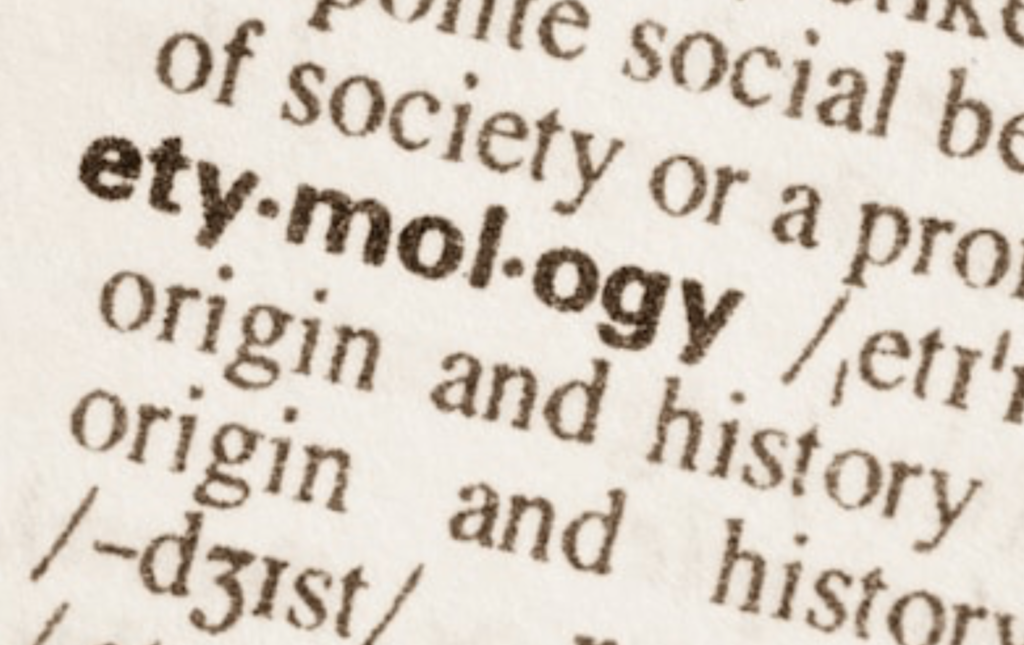If you discover the historical past and roots of a phrase – the etymology – you draw upon a wealthy story that may unlock understanding for our pupils in science, maths, geography, and extra. It may possibly add a layer of understanding that helps our novice pupils hook into a difficult educational time period which will have remained summary and inscrutable to them.
In fact, I hardly ever deployed this technique within the first decade of my educating within the classroom. Solely within the few couple of years did I recurrently deploy this technique. Certainly, it was solely once I was sitting in science classes and different topic areas as a senior chief, I begun to see the legion of alternatives that had quietly handed me by.
I’ve written earlier than about my ten favorite etymologies, however I’ve all the time held wanting compiling topic particular lists. Finally, it requires extra topic experience than I can muster to do that job justice. That mentioned, I do have some favorite topic particular etymologies:
- Phagocyte – biology. This phrases derives from Greek – ‘phago’ which means ‘to eat’ and ‘cyte’, which means ‘cell’. This ‘cell eater’ which means presents a really concrete and vivid illustration of the actions of this cell, given it consumes different particles, akin to useless cells. Associated phrases, akin to ‘macrophages’, ‘monocytes’ and ‘granulocytes’ all grow to be extra readily understood while you already know the roots of ‘phago’ and ‘cyte’.
- Chiaroscuro – artwork. In artwork, college students want to know many particular phrases and phrases about inventive strategies and intervals and so forth. One such attention-grabbing artist time period is ‘chiaroscuro’. Italian in origin, this time period is probably most well-known in describing Leonardo Da Vinci’s use of of it within the iconic ‘Mona Lisa’. It describes the play of utilizing each gentle and shadow (actually which means ‘gentle and darkish’) to create a vivid three-dimensional sense in a portray or picture.
- Propaganda – historical past. We stay in a media age the place pupils have one million webpages at their fingertips. The phrase ‘propaganda’ derives from ‘propagation’ and means ‘issues to be shared/unfold’. For hundreds of years, the time period was deemed optimistic, together with the sharing of non secular religion. Within the final century, the damaging sense of spreading false info for political functions has emerged. Not solely that, very lately, the notion of the phrase ‘pretend information’, has grow to be the embodiment of ‘propaganda’.
- Theism – spiritual training. Understanding spiritual training requires a demanding grasp of worldly – and otherworldly – data. The very phrase ‘theology’ and ‘theism’ are on the very root of that understanding. The basis of the phrase ‘theism’ is the Greek phrase ‘theos’ – which means ‘god’. The basis ‘the’ is on the coronary heart of so many associated phrases: atheism, monotheism, polytheism, pantheism, Judaism, theology, theocracy, and extra. By securing these linguistic roots, the very roots of non secular understanding are unveiled to our college students.
- Local weather – geography. The phrase ‘local weather’ doesn’t simply characterise one of the vital urgent points on the planet right this moment – it is usually a time period that geographers must know with confidence. The origins of the phrase are useful and memorable for our pupils. The traditional Greeks has the idea that the world sloped, from the equator to the north pole, and that this slope accounted for the totally different climates. The unique Greek ‘klinein’ which means ‘slope’ then accounts for the phrase we all know right this moment, after ‘klima’ got here to indicate a extra native area that had its personal climate/local weather. So, with our pupils, we will directly expose long-held myths while bolstering their vocabulary.
- Algorithm – pc science. This phrase derives from Arabic (like a lot of the foundations of arithmetic) and is called after an historical mathematician, ‘Abu Abdullah Muhammad ibn Musa Al-Khwarizmi’, who was referred to as the ‘father of algebra’. As his identify was Latinised to ‘Algorithmi’, it gave the identify to a collection of steps to resolve an issue. In modern-day pc science, we will see its important mathematical roots.
I look forward to a day when a raft of topic specialists pool their experience to create a extra full story of etymologies for each topic.
Associated Studying and Sources:
- Rebecca Dann, a secondary faculty AHT, has shared these entire faculty sources on the etymology of a bunch of educational vocabulary – right here.
- This ‘Origins of Mathematical Phrases’ does a complete job of doing what it says on the tin – right here.
- This can be a thorough checklist of Greek and Latin roots – right here.

